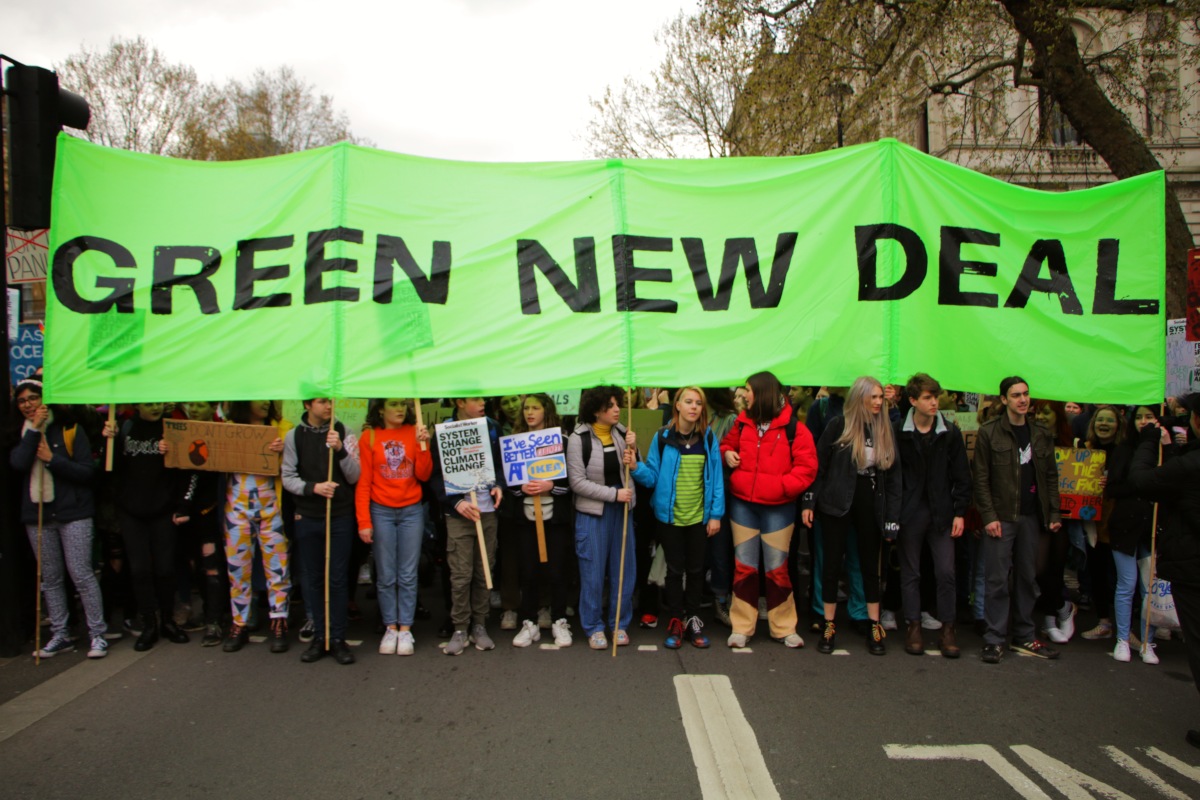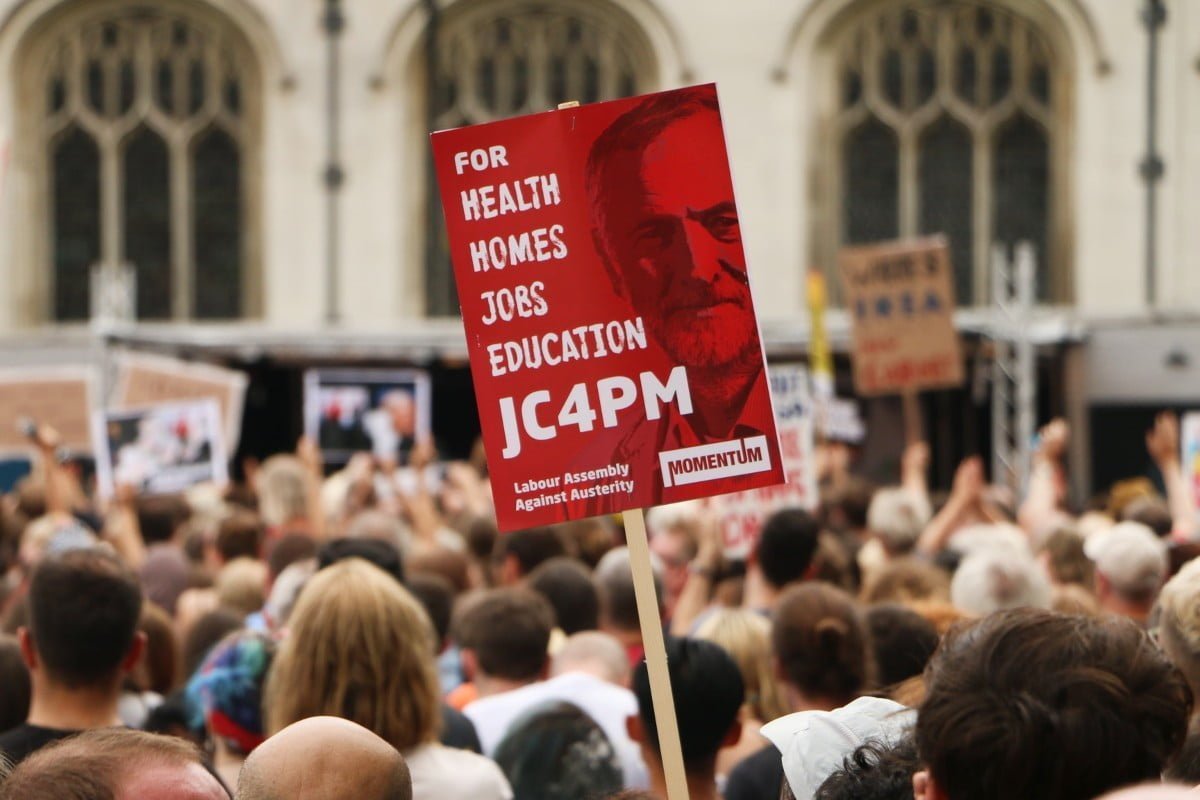Motions to this year’s Labour Party conference will reflect the radicalisation and transformation taking place inside the party. But right-wingers, opposed to bold change, are putting up a resistance.
With the Labour Party conference only a few months away, activists are mobilising in their CLPs to pass motions to send to conference.
Socialist Appeal has drafted several model motions, which deal with pressing issues facing the working class. If adopted by conference, they would put a bold socialist programme at the heart of the Labour Party. They include:
- For a socialist housing policy;
- For system change, not climate change;
- For democratically elected representatives;
- Rule change – to restore the original (socialist) Clause IV.
As well as the model motions drafted by Socialist Appeal, many left activists will be moving policy motions circulated by Momentum. These include a range of topics – from ending the system of immigration detention centres, to opposing US military intervention in Venezuela.
The most popular of these policy motions are likely to be those calling for a Green New Deal and a four-day week. These call on the next Labour Party manifesto to include commitments to achieve “zero carbon emissions by 2030” and to “introduce a four-day week with no loss of pay”.
Already these motions have attracted the ire of the right wing within the Labour Party and trade unions. One unnamed union official told the bosses’ paper, the Financial Times, that he thought the policies are “barmy”, and “would make Labour unelectable” (FT, 16/05/19).
These arguments are worth exploring here, as no doubt the right wing in CLPs and at the conference itself will use them, and similar points, to argue against these left-wing motions.
Green New Deal
 The Labour for a Green New Deal motion calls for “a state-led programme of investment and regulation for the decarbonisation and transformation of our economy”. The aim is to keep global average temperatures from rising above 1.50C, by “rapidly phasing out all fossil fuels”.
The Labour for a Green New Deal motion calls for “a state-led programme of investment and regulation for the decarbonisation and transformation of our economy”. The aim is to keep global average temperatures from rising above 1.50C, by “rapidly phasing out all fossil fuels”.
According to the aforementioned anonymous union official, to achieve this by 2030 would require converting 65,000 new boilers a week to electric only sources. Apparently, this is “barmy”, since “there are literally not enough skilled people in the country to do that work”.
It may well be the case that there are not enough trained engineers currently. But with 1.3 million people unemployed in the UK, are we to believe that such engineers couldn’t be trained?
It is true that under capitalism, where production is only for profit, these engineers certainly will not be trained, as it is not profitable for the ruling class to do so. Will the privatised National Grid invest what is necessary at the expense of its shareholders?
Furthermore, funding for further education has been cut by 8% between 2010 to 2018, as the ruling class passes the bill for their crisis onto everyone else.
On the contrary, a socialist plan to address climate change would start from what action is necessary to meet humanity’s needs – i.e. to avoid climate catastrophe – not how many engineers currently exist. This could only be achieved under a democratically planned economy, where production is for need and not profit.
This same union official then asks if a Corbyn government would tax the “working poor” to pay for low carbon infrastructure upgrades. He informs us that: “We have to save the planet but if you put most people on the spot and offer them no job or a dead planet, they would take the risk of a dead planet.”
As if it has to be one or the other! Even the Green New Deal motion calls for “a just transition to well-paid, unionised, green jobs available for all”.
The main limitation of this motion, however, is that it does not specify how this is to be achieved, including the question of where will the funding come from. It calls for “a green industrial revolution expanding public, democratic ownership as far as necessary for the transformation”. As a result, the question of who owns the energy companies, banks, construction firms, and transport networks is left vague.
We need to be more explicit. The working class must have collective ownership of these important productive forces, with democratic workers’ control over how they are used. No compensation should be paid to their former fat-cat owners. This means breaking with capitalism.
Four-day week
 According to another unnamed union official in the FT, a four-day week sounds good, but is unworkable in practice. “Where are those people coming from to do the extra day when we already have full employment?”
According to another unnamed union official in the FT, a four-day week sounds good, but is unworkable in practice. “Where are those people coming from to do the extra day when we already have full employment?”
Full employment? Really? According to the Office for National Statistics, the unemployment rate is 3.8%, the lowest since 1974. But this ignores the fact that the rate of “economic inactivity” of the working age population – those without a job, but who are not considered “unemployed” since they have not actively sought work in the last four weeks – is a staggering 20.8%.
What’s more, 1.8 million workers – 6% of all those employed – are on zero-hour contracts. And this is considered “full employment”!
What this union official presumably means is: how can we give workers a 20% pay rise (what a four-day week with no loss of pay would amount to), without affecting the profits of the capitalists? The answer is that without a 20% rise in productivity, you cannot.
The reality is that for the ruling class, their profits have shot up, despite productivity stagnating (due to a lack of investment). Their secret: to squeeze as much unpaid labour out of the working class as possible.
So whilst workers’ pay has stagnated or fallen over the past decade, the incomes of the world’s 2,000 or so billionaires have increased exponentially. In 2017 alone, their wealth increased by 20% – an increase of £1.4tn!
By expropriating these billionaires, this wealth – which would otherwise be channelled into their pockets – could instead be used to fund a four-day week.
What’s more, with a socialist plan of production we could invest massively in automation. Under capitalism, such automation results in unemployment. But under a rational, planned, socialist economy, technology would be used to dramatically reduce the hours of the working week whilst increasing society’s wealth.
How such a policy would “make Labour unelectable”, only this union bureaucrat knows!






